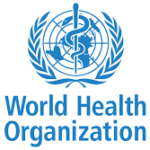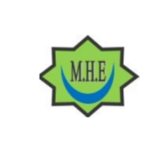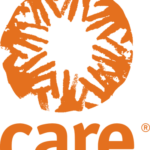Job Description
Job Description
IMPORTANT NOTICE: Please note that the deadline for receipt of applications indicated above reflects your personal device’s system settings. OBJECTIVES OF THE PROGRAMME
The objective of WHO’s Polio Eradication Programme is to eradicate polio globally in accordance with World Health Assembly (WHA) resolutions, and fully implement the Global Polio Eradication Strategy 2022-2026 in conjunction with GPEI partners and Member States. The polio eradication programme in Somalia has as its immediate objectives of stopping the circulating vaccine-derived polio virus in the country, keeping the country free from wild polio virus and support polio transition by ensuring essential polio functions through and beyond polio transition and integrating surveillance activities for polio and measles within the broader context of other vaccine-preventable diseases in accordance within Immunization Agenda 2030.
DESCRIPTION OF DUTIES
The incumbent will perform the following duties:
1. Organize and supervise Acute Flaccid Paralysis (AFP) surveillance activities in Somalia specifically:
– Develop/update and cost the plan for a more robust and reliable system of surveillance
– Prepare guidelines and training materials for AFP surveillance, provide training and build capacity for WHO and relevant national staff
– Conduct regular training and supervision of surveillance staff and monitor activities in the field
– Oversee the organization of advocacy/orientation meetings for clinicians/health staff/traditional healers/community worker on AFP surveillance
– Plan and ensure proper implementation of active surveillance and routine reporting
– Coordinate and oversee shipment of samples from AFP cases and environmental surveillance and monitor laboratory testing
– Monitor the performance of environmental surveillance, periodically review the utility and effectiveness of environmental sampling sites and plan expansion of environmental surveillance based on evolving epidemiology of polio and programme needs.
– Analyze and interpret surveillance data and monitor AFP surveillance performance through process and outcome indicators- Use data to identify gaps and take corrective actions
– Develop and participate in regular surveillance reviews
– Validate surveillance data on an ongoing basis through field visits, data audits and GPS technology.
2. Liaise with NGOs and other partners to ensure their support and cooperation in AFP and environmental surveillance as well as reporting of other vaccine-preventable diseases
3. Coordinate surveillance activities with countries in the Horn of Africa ensuring exchange of information and cross notification and joint investigation of cross border cases and virus isolates.
4. Support the establishment of integrated vaccine-preventable diseases surveillance system as part of the Integrated Disease Surveillance and Response (IDSRS) and coordinate with WHE and EPI programmes for capacity building for AFP reporting as well as integration with systematic reporting of other vaccine-preventable diseases
5. Coordinate regular surveillance data analysis for vaccines-preventable diseases and data flow to WHO Regional Office and headquarters as needed.
6. Prepare regular programme reports to reflect progress achieved and identify challenges and solutions
Skills and Qualifications
Education
Essential: Advanced University degree (Master’s Degree) in Medicine, or Health Sciences
Desirable: Post-Master’s degree (e.g. PhD Degree or similar) in public health/health related field
Experience
Essential: A minimum of seven years of relevant experience, at the national and international level, in Polio Eradication Initiative and/or Expanded Programme on Immunization and/or other public health related activities.
Desirable: Experience in AFP surveillance as well as surveillance for other EPI diseases
1. Experience in control of communicable diseases
2. Experience of working in developing countries with low performing immunization programmes.
3. Previous UN/ WHO experience in relevant field
Skills
1. Knowledge of principles, practices, methodology and techniques of immunization, disease eradication, epidemiology, disease prevention and control of communicable diseases.2. Knowledge in analyzing vaccine preventable diseases surveillance and immunization data, synthesizing information, and presenting clear and concise conclusions and recommendations for decision making.3. Demonstrated capacity in developing plans related to immunization and disease eradication programmes4. Good interpersonal skills5. Demonstrated ability to work constructively with people of different cultural and educational backgrounds.
WHO Competencies
Teamwork
Respecting and promoting individual and cultural differences
Communication
Building and promoting partnerships across the organization and beyond
Ensuring the effective use of resources
Creating an empowering and motivating environment
Use of Language Skills
Essential: Expert knowledge of English.
Desirable: Intermediate knowledge of Other WHO language.
REMUNERATION
WHO salaries for staff in the Professional category are calculated in US dollars. The remuneration for the above position comprises an annual base salary starting at USD 77,326 (subject to mandatory deductions for pension contributions and health insurance, as applicable), a variable post adjustment, which reflects the cost of living in a particular duty station, and currently amounts to USD 2938 per month for the duty station indicated above. Other benefits include 30 days of annual leave, allowances for dependent family members, home leave, and an education grant for dependent children.
How to apply
ADDITIONAL INFORMATION
- This vacancy notice may be used to fill other similar positions at the same grade level
- Only candidates under serious consideration will be contacted.
- A written test may be used as a form of screening.
- In the event that your candidature is retained for an interview, you will be required to provide, in advance, a scanned copy of the degree(s)/diploma(s)/certificate(s) required for this position. WHO only considers higher educational qualifications obtained from an institution accredited/recognized in the World Higher Education Database (WHED), a list updated by the International Association of Universities (IAU)/United Nations Educational, Scientific and Cultural Organization (UNESCO). The list can be accessed through the link: http://www.whed.net/. Some professional certificates may not appear in the WHED and will require individual review.
- Any appointment/extension of appointment is subject to WHO Staff Regulations, Staff Rules and Manual.
- Staff members in other duty stations are encouraged to apply.
- For information on WHO’s operations please visit: http://www.who.int.
- WHO is committed to workforce diversity.
- WHO prides itself on a workforce that adheres to the highest ethical and professional standards and that is committed to put the WHO Values Charter into practice.
- WHO has zero tolerance towards sexual exploitation and abuse (SEA), sexual harassment and other types of abusive conduct (i.e., discrimination, abuse of authority and harassment). All members of the WHO workforce have a role to play in promoting a safe and respectful workplace and should report to WHO any actual or suspected cases of SEA, sexual harassment and other types of abusive conduct. To ensure that individuals with a substantiated history of SEA, sexual harassment or other types of abusive conduct are not hired by the Organization, WHO will conduct a background verification of final candidates.
- WHO has a smoke-free environment and does not recruit smokers or users of any form of tobacco.
- WHO has a mobility policy which can be found at the following link: http://www.who.int/employment/en/. Candidates appointed to an international post with WHO are subject to mobility and may be assigned to any activity or duty station of the Organization throughout the world.
- Applications from women and from nationals of non and underrepresented Member States are particularly encouraged.





